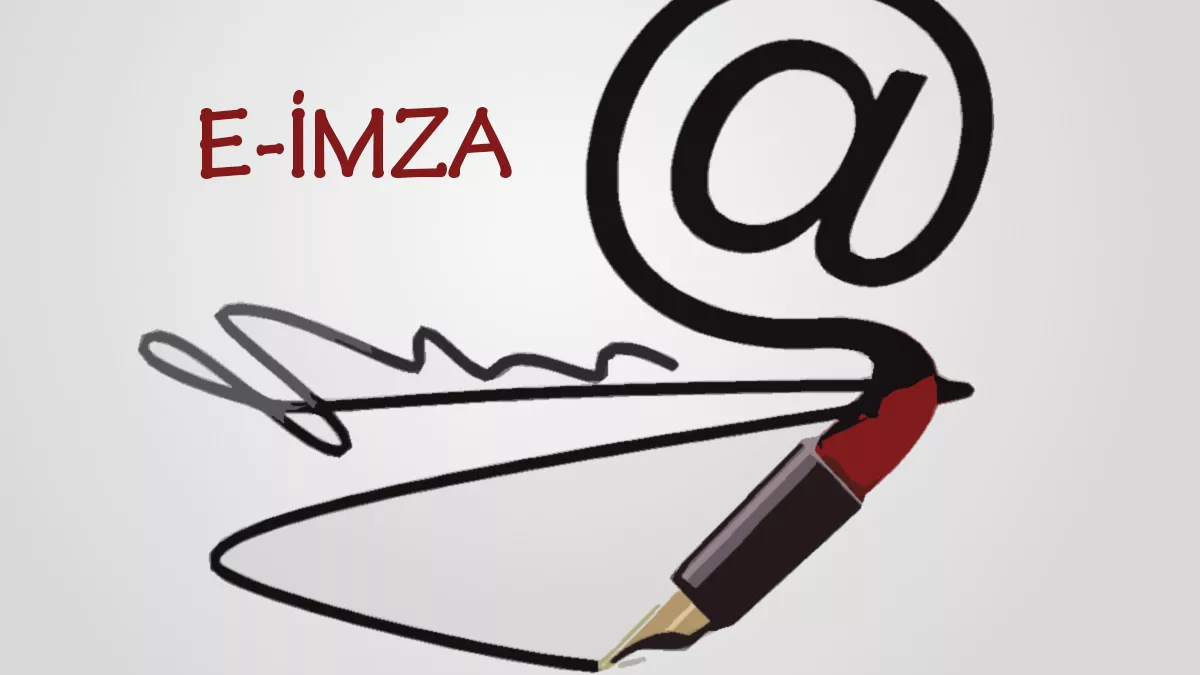What is E-signature?

Electronic signature is a technology used for authentication and data integrity in the digital world. In today’s digitalized world, the electronic signature is of great importance as the digital equivalent of the wet signature on paper. It is used in many areas to speed up processes, increase security and reduce costs. An electronic signature is a digital signature that authenticates the origin of a document or message and guarantees its integrity. This signature is created using encryption methods to verify the identity of the signatory and ensures the secure transmission of documents and messages in the digital world. Electronic signature technology, 20. century with the spread of digital encryption and computer networks. The first electronic signature solutions were based on the RSA algorithm developed by Rivest, Shamir and Adleman in the 1970s. In the late 1990s and early 2000s, electronic signature technology became more advanced and widespread. In Turkey, electronic signature has been put on a legal basis with the Electronic Signature Law adopted in 2004.
Legal Basis of Electronic Signature
In Turkey, electronic signature is regulated by the Electronic Signature Law No. 5070. This law sets out the legal and technical principles of electronic signature. According to the law, an electronic signature has the same legal validity as a handwritten signature and has the same power of proof. Elektronik imzanın geçerliliği, güvenli elektronik imza sağlayıcıları tarafından verilen nitelikli elektronik sertifikalar ile sağlanır. The Electronic Signature Law has introduced various regulations and standards to ensure the security and validity of electronic signatures. These regulations encourage the legal acceptance and use of electronic signatures.
How Does Electronic Signature Work?
The operation of an electronic signature is based on cryptographic algorithms and digital certificates. The process can be summarized as follows: A qualified electronic certificate is obtained from a certificate provider to create a secure electronic signature. This certificate contains the person’s credentials and public key. When signing a document, the hash value (digest value) of the document is calculated. This hash value is unique to the content of the document and changes with even the slightest change. This hash value is encrypted with the user’s private key and an electronic signature is created. The recipient recalculates the hash value of the document and uses the user’s public key to verify the signature. If the calculated hash value matches the hash value in the signature, the signature is valid and the integrity of the document is preserved.
Advantages of Electronic Signature
Electronic signature has many advantages. First, it speeds up the processes of signing and approving documents, saving time and costs. While traditional wet signature processes require the physical transportation and storage of documents, electronic signature allows these processes to be carried out quickly and securely in a digital environment. Secondly, electronic signature technologies guarantee that documents have not been altered and verify the identity of the signatory. This ensures the security of documents and prevents forgery. Third, an electronic signature is legally recognized in many countries and has the same legal validity as a wet signature. This makes the use of electronic signatures more widespread and increases the security of digital transactions. Finally, an electronic signature contributes to the environment by reducing the use of paper.
Uses of Electronic Signature
Electronic signature is used in many different fields. The public sector, government departments and public institutions speed up and secure transactions by using electronic signatures. In particular, e-government applications provide citizens with fast and secure access to government services. The finance and banking sector secures customer transactions using electronic signatures. By using electronic signatures for loan applications, account opening and other banking transactions, banks speed up processes and increase security. In the e-commerce sector, online shopping and trade transactions are secured with electronic signatures. Electronic signatures are used for signing online contracts and confirming trade transactions. In the healthcare sector, electronic signatures are used to protect sensitive data such as patient information and prescriptions. Electronic signature ensures that health services are provided in a secure and fast manner. In the legal sector, lawyers and law firms sign and send case files and documents with electronic signatures. This speeds up legal proceedings and ensures the security of documents.
Electronic Signature and Security
The security of an electronic signature is directly related to the cryptographic algorithms used and the reliability of the certificate providers. Several measures should be taken to ensure the security of the electronic signature. First, electronic signature certificates should be obtained from trusted and authorized certificate providers. These providers guarantee the security and validity of electronic signature certificates. Secondly, the cryptographic algorithms used to create the electronic signature must be strong and up-to-date. These algorithms are important for securing signatures and preventing forgery attempts. Third, the private keys used for signing must be stored in secure environments and protected against unauthorized access. The security of private keys is critical to the security of the electronic signature. Finally, electronic signature software and certificates should be regularly updated. These updates are necessary to close security gaps and increase the security of the electronic signature.
The Future of Electronic Signature
Electronic signature technology will become even more important with digital transformation processes. With the integration of new technologies such as blockchain and artificial intelligence, the security and use of electronic signatures will become more widespread. Blockchain technology in particular can offer secure signing processes in a decentralized and transparent structure. Blockchain enhances security by ensuring that signatures are recorded in an unalterable and traceable way. Artificial intelligence can make significant contributions to detecting and preventing forgery in signature processes. For example, by analyzing signature processes, AI algorithms can detect anomalous and suspicious behavior and thus prevent counterfeiting. Further expansion and enhanced security of electronic signature technology in the future will increase the security and efficiency of digital transactions.
Electronic signature is an indispensable technology for authentication and data integrity in the digital world. Thanks to its speed, security and cost advantages, it is used in many areas and is an important part of digital transformation. An electronic signature ensures the secure transmission of documents and messages and guarantees that these documents are not subsequently altered. The legal basis, usage areas and advantages of electronic signature increase the importance and prevalence of this technology. In the future, with the integration of new technologies, the areas of use and security of electronic signatures will expand even further. The correct and secure use of electronic signature will increase the security and efficiency of digital transactions. Electronic signature is the key to secure and fast transactions in the digital world.







